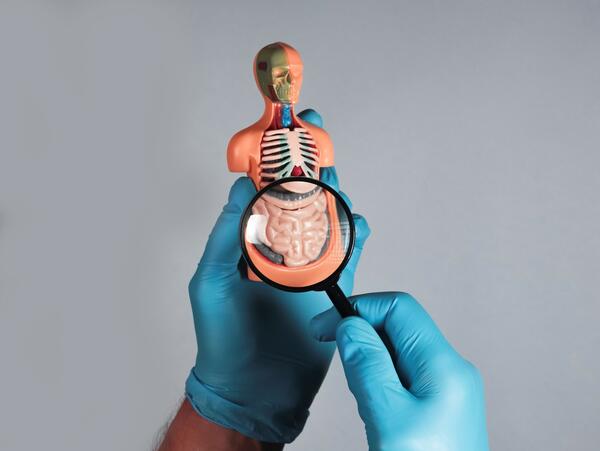
Why Diagnosing Colorectal Cancer Early Is Crucial For Treatment And Recovery
Colorectal cancer might not be a topic you think about every day, but it should be on your radar. It’s one of the most common cancers out there, yet it’s highly treatable when caught early. Delaying diagnosis could be detrimental to the treatment of the said disease. Continue reading to learn why early detection is so critical and how you can take steps to protect yourself and your loved ones against colorectal cancer.
Cancer Does Not Wait; You Should Not Either
It's a universal fact: colorectal cancer starts quietly. You may not notice any symptoms until the disease progresses further. That’s the tricky part—it’s a silent threat in its early stages. Don’t wait for symptoms to show up; get screened before it’s too late.
And did you know that the success rate for colon cancer treatment Singapore depends heavily on when it’s found out? If caught in its early stages, the five-year survival rate of the disease is high. Yet it plummets significantly in much later stages. Early diagnosis means doctors, whether you're a patient in Asia or other Western countries, can remove or treat cancer before it spreads, drastically improving your odds of recovery.
Less Invasive Treatment Options Are Available For Early Detection
Diagnosing colorectal cancer in its early stages often means less aggressive treatments. For instance, early-stage cancer might only require minor surgery or targeted therapies. Once cancer advances, you’re looking at more intense interventions like chemotherapy, radiation, or complex surgeries. Early detection can save you from these harsher treatments and their side effects.
What Are The Top Symptoms Of Colorectal Cancer
Many people think they’ll only need to see a doctor if they notice symptoms. But by the time noticeable symptoms like rectal bleeding, persistent abdominal pain, or unexplained weight loss appear, the cancer could already be advanced. Even if you feel fine, regular screenings can catch the disease before symptoms show up.
Colorectal Cancer Screening Tests Are A Must
Screening tools like colonoscopies are powerful allies in detecting colorectal cancer early. A colonoscopy doesn’t just find cancer; it can also prevent it. Doctors can remove precancerous polyps during the procedure, stopping cancer before it starts. It’s a proactive step that could save your life.
If you’re 45 or older, it’s time to talk to your doctor about screening. That’s the new recommendation from leading health organizations due to rising cases among younger adults. If you have a family history of colorectal cancer or other risk factors like inflammatory bowel disease, you might need to start even earlier.
Lifestyle Factors That You Can Control
While you can’t change your genetics, you can lower your risk through healthy lifestyle choices. Eating a diet rich in fruits, vegetables, and whole grains, staying active, maintaining a healthy weight, and avoiding tobacco and excessive alcohol can all reduce your chances of developing colorectal cancer. Combined with regular screenings, these habits form a powerful defense.
Early Diagnosis Is Cost-Effective
Beyond the physical and emotional toll, advanced cancer treatment can be financially draining. Early detection often means simpler, shorter, and less expensive treatment plans. By catching the disease early, you’re not just saving your life—you’re avoiding significant medical bills along the way as well.
What Should Your Action Plan Be In Fighting And Diagnosing Colorectal Cancer
Approach the fight against colorectal cancer with a plan. Check out the following tips to help you out:
- Schedule colon cancer exams with your licensed health provider. Make this a priority, especially if you’re over 45 or have risk factors like those mentioned above.
- Talk to your doctor. Discuss your risk factors and family history openly with your trusted physician.
- Adopt a healthy lifestyle. Eat well, exercise, and avoid harmful habits.
- Spread awareness about the disease and screening. Encourage friends and family to get screened too.
- No one looks forward to a colonoscopy. But the embarrassment or discomfort you might feel is temporary, while the benefits of catching cancer early are life-changing. Breaking the stigma around screenings can encourage more people to take this critical step for their health.
You might think colorectal cancer won’t happen to you, but the truth is, it can affect anyone. Early detection doesn’t just improve your odds—it can save your life. Screenings might feel like an inconvenience now, but they’re nothing compared to the challenges of fighting advanced cancer.
Final Words
Diagnosing colorectal cancer early isn’t just about surviving—it’s about thriving. By staying proactive with screenings, recognizing your risk factors, and leading a healthy lifestyle, you’re giving yourself the best shot at a long, healthy life. Don’t wait until it’s too late. Talk to your doctor, schedule a screening, and take charge of your health today.